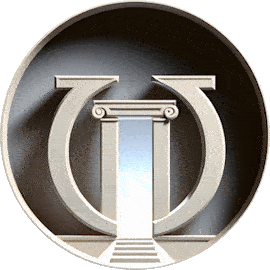Name Numerology
A Brief Introduction to Numerology
Numerology is a system of divination based on the belief that each of the natural numbers (1,2,3, etc.) represents a different quality in nature or human experience. Finding the specific number that applies to an event or person therefore allows us to determine the fundamental essence of the situation or individual.
The origins of numerology can be traced back to Classical Greece and, particularly, to the philosopher Pythagoras (c. 570 - 495 BCE). The Pythagorean School saw numbers as the foundation of all things, and as having mystical properties.
In its simplest form, numerology is the basis for the distinction between traditionally 'lucky' and 'unlucky' numbers (e.g., seven and thirteen).
The most widely used numerology systems are based on distinguishing between the qualities associated with the single digits (1-9). Zero is not considered a natural number in numerology, and is generally ignored.
To determine the numerological significance of a number greater than nine, it is commonly reduced to its digital root. This is done by adding up all the digits in the number and repeating this addition until only one digit remains (a process known as theosophical addition).
For example, the digital root of 417063 is 3. This is because 4+1+7+0+6+3 = 21, and 2+1 =3.
The most elaborate forms of numerology, such as Hebrew gematria, use ideas associated with the full (unreduced) number. For example the number 666 has traditional associations that give it a significance beyond that of its digital root (9).
Gematria and other related methods derive from ancient alphabets such as Greek or Hebrew in which letters are also used to represent numbers. This means that it is possible to calculate a word's numerical value by considering each letter as a number and adding up the several values.
Gematria assumes that different words that sum to the same number are themselves meaningfully related. This allows us to gain insight into the deeper significance of a word by considering other words that have the same numerical value.
Using the Name Numerology Calculator
Numerology is often used to discover the significance of a person's name. Most English versions of this use a very simple method in which each letter is assigned a value between 1 and 9. The values are added for all letters in the name and then reduced to the digital root.
This method is useful for determining the basic numerological quality of the name. However, it does not allow the more sophisticated gematria analysis that is possible when the letters take values based on classical alphabets. In the Greek and Hebrew alphabets, for example, as well as letters representing single digits (1-9), other letters represent tens (10, 20, etc.) or hundreds (100, 200, etc.).
The Classical Name Numerology Calculator below gives each letter a value corresponding to those of the ancient Greek alphabet. Some Greek letters are not found in modern English (and vice versa). In these cases, the closest phonetic match is used. Often the Greek letter corresponds more closely to a sound represented in English by two letters (e.g., 'NG', or 'PS'). You should always prefer these two-letter forms where they appear in your name.
To use the Calculator, you should spell either your full birth name, or the full name you are generally known by (where these are different, they may give different insights into your character).
First, you should select Outer expression. Two interpretive analyses of this are made. One is based on the Numerology Root (digital root) of your full name. It shows the typical characteristics associated with this number as these are likely to manifest in your everyday personality.
The other analysis displays the sum of all the letters in your name. This number may have some particular significance in your life. Occasionally, the calculator will indicate that your sum is a prime number, which could be seen as signifying a unique or idiosyncratic personality. If your number is not prime, its factors will be displayed. Each of these may have some personal significance. The number of factors may also indicate the degree of psychological complexity.
The calculator will also show whether your Letter Sum is a Fibonacci number. These are numbers in the Golden Ratio sequence 0,1,1,2,3,5,8,13,21 ...) in which each number is the sum of the two previous values. Fibonacci numbers are sometimes believed to be especially fortunate, or to indicate creativity.
Having examined the analyses for 'Outer expression' you should next select Inner motivation. The results are now displayed using only the vowels in your name. In certain traditions, vowels represent inner potentials and latent energies. These analyses may therefore indicate something about your inner nature and inner motivations.


Classical Name Numerology Calculator
by Psychic Science
This is PREMIUM content
You may be asked to view
a short ad to use the app
Click the buttons to spell your full name
Your name remains private and is not sent to our servers
Use the two-letter buttons if they appear in your name
Inner

